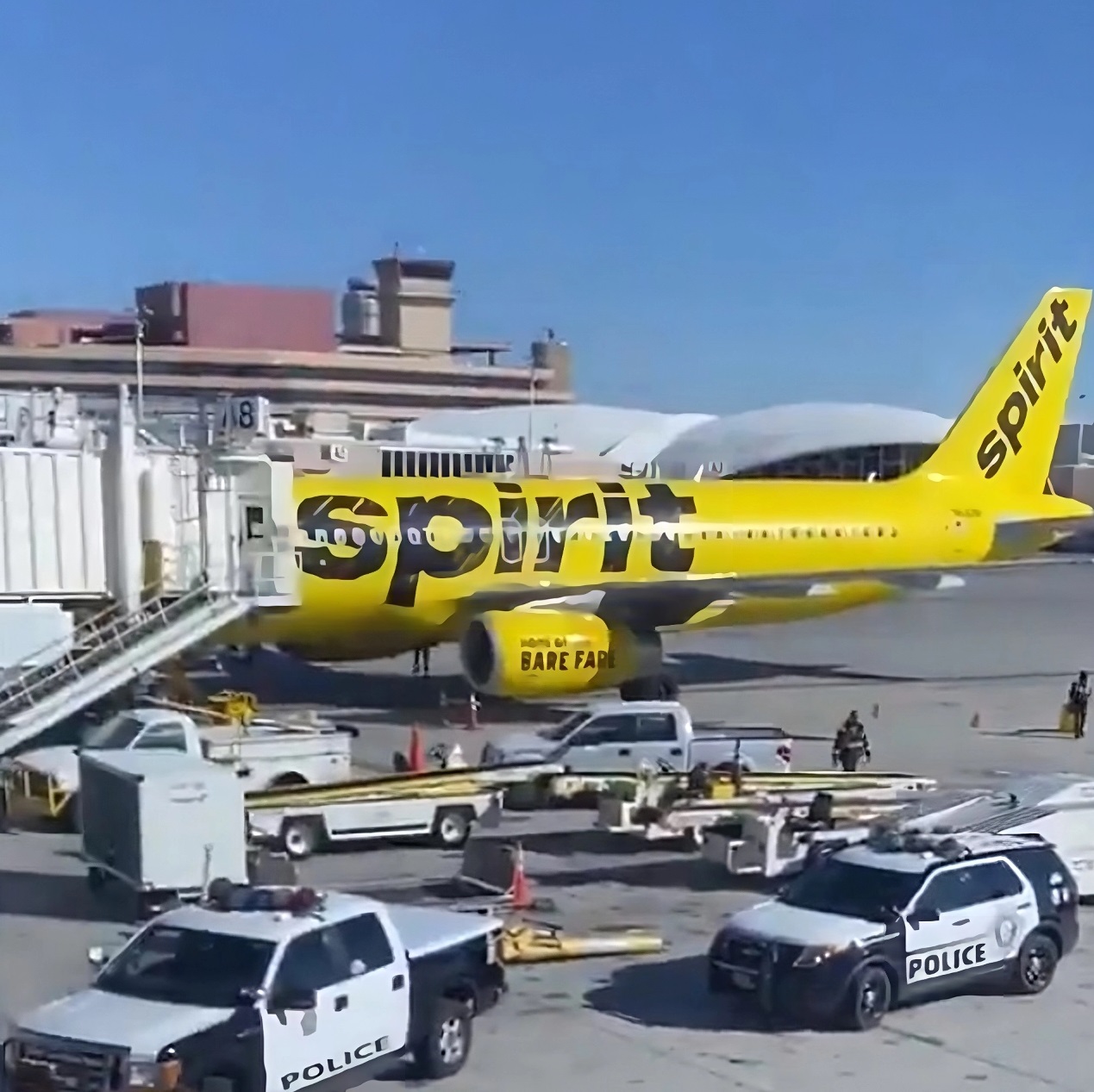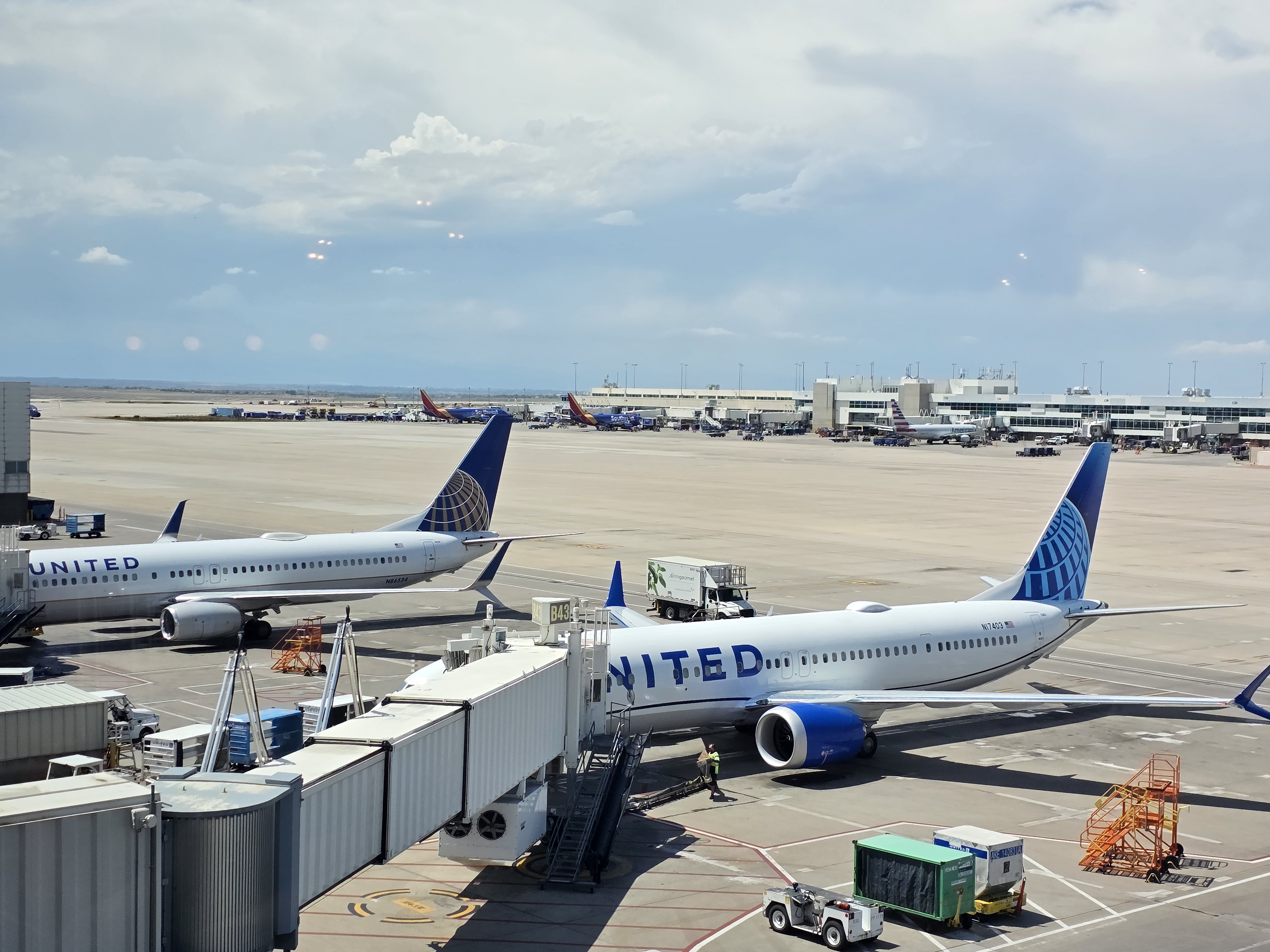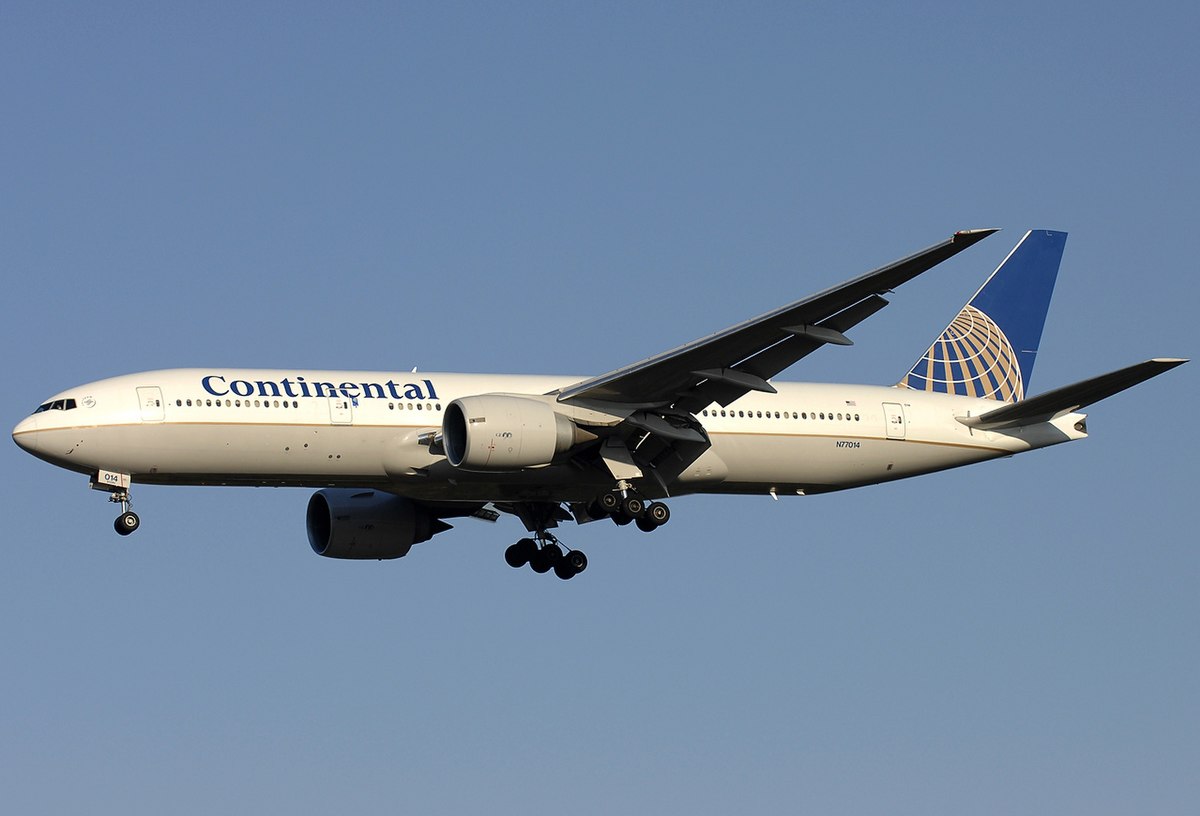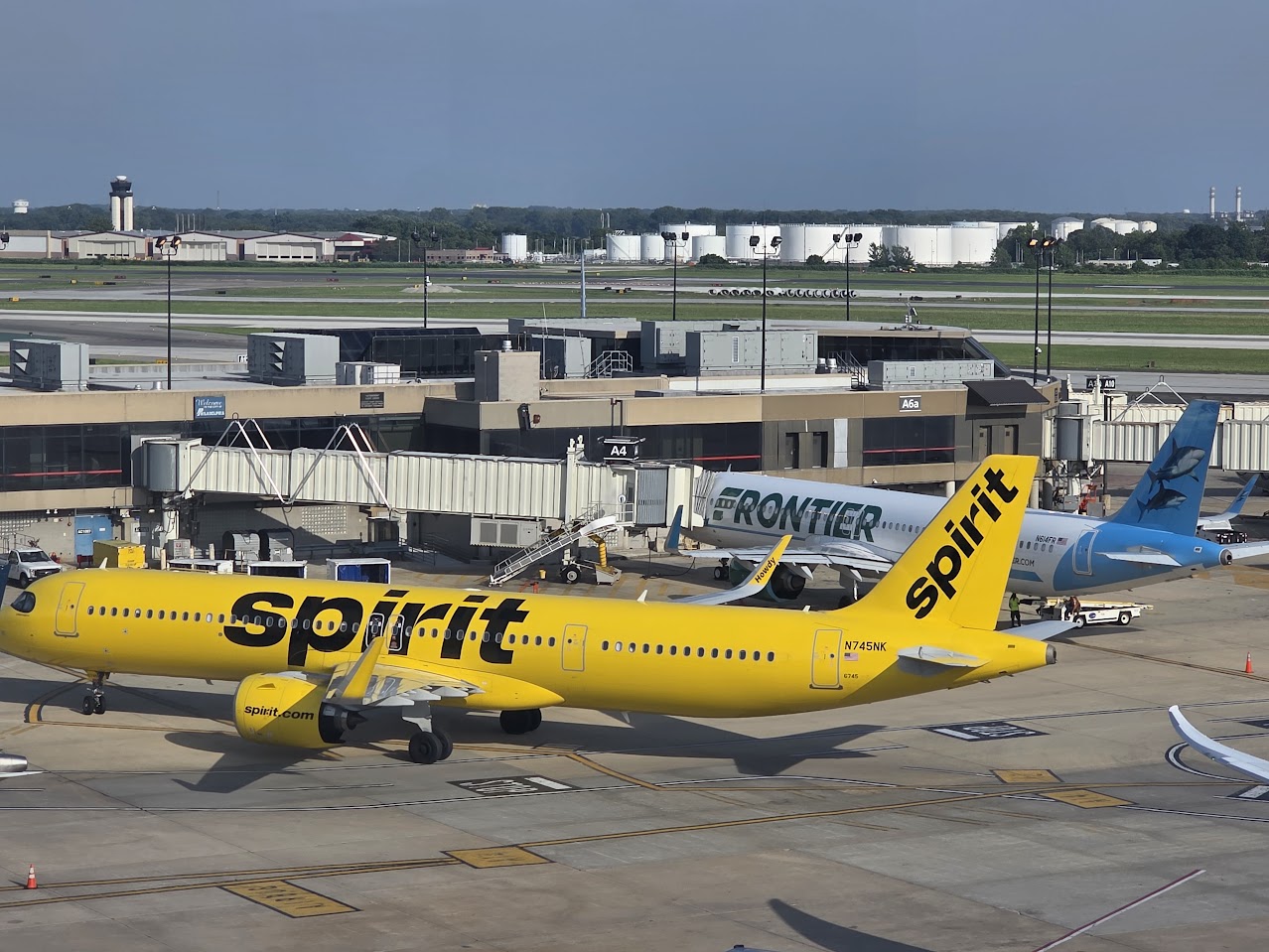Lack of competition in the airline industry stems from antitrust law enforcement. That’s what former Delta and Northwest CEO Richard Anderson suggested on the Airlines Confidential podcast this week, when he joined ex-Wall Street Journal airline reporter Scott McCartney and ex-American Airlines CEO Doug Parker.
Spirit Airlines is in bankruptcy. They’ve already said they’re giving up half their fleet. The whole thing was going to be flying if they’d been acquired by JetBlue, but the government stopped that. The Biden Administration said they wanted those planes all flying under an ultra-low cost model, and that’s why they blocked the JetBlue merger that would have saved Spirit.

It’s hard to know whether more Spirit Airlines planes or more of the JetBlue product is better for consumers. But the Biden DOJ replaced consumer judgment through their ticket purchase behavior with thier own judgment through the legal process. And it looks like they’re going to get the opposite of what they intended.
Richard Anderson makes an interesting point about antitrust and counterfactuals.
- American West took over US Airways and then American Airlines
- Delta took over Northwest
- Continental took over United

And that left us with three large network carriers. But the Clinton Justice Department sued to stop Northwest from combining with Continental in 1998. And if Northwest and Continental had been allowed to combine, Anderson argues, we’d have four large network carriers today:
- Northwest/Continental
- And Delta couldn’t have merged with Northwest
- United wouldn’t have merged with Continental
- American, arguably in conjunction with US Airways
The only way you had consolidation was the failing carrier doctrine. So the only consented merger between 1987 and the Delta Northwest merger closed in whatever, 2010. The only ones that occurred were either bankruptcy auctions, Eastern and Pan Am, and then Doug’s transaction with US Air and America West, which started the ball rolling.
We tried to do a transaction in 98 at Northwest. We bought David Bonderman’s interest in Continental. and the Justice Department sued. And so everything kind of got put on a back burner.
Oddly enough, if we would have gotten that transaction done, there’d probably be four of them spoke carriers today, not three. But that’s how the hand of government works. So consolidation was really important.

The large network carriers were allowed to reach scale, which they needed to become profitable. The ultra-low cost and lower-cost segments were denied that same opportunity, which would have spread fixed costs over more flights and seats.
Right now the ultra-low cost sector is struggling because
- their costs are rising
- they haven’t had the partnerships, route networks or products that consumers have increasingly wanted to buy (either directly or through credit card cobrand rewards) and
- the big network carriers have consolidated, run more efficient operations, and compete better than they used to.

It’s ultimately antitrust that meant to protect low cost flying but wound up disadvantaging low cost flying. There’s an important lesson about trying to plan the market. Does anyone remember when Microsoft was going to rule the world by controlling the desktop browser? The U.S. Department of Justice and 20 state attorneys general filed the antitrust case against Microsoft on May 18, 1998 – less than four months before the launch of Google.
And Google was controlling the world, the federal government filed its antitrust suit against them in late 2020, just two years before ChatGPT publicly launched (and that happened to years before the Google antitrust verdict).


So, the FTC denies a merger… and you blame lack of competition on anti-trust enforcement? Gary, that’s counter-intuitive. Inherently, mergers (and further consolidation of any market) often lead to less, not more, competition. I get it, many of us were looking forward to jetBlue-Spirit, or whatever, but, you’re drawing the wrong conclusion here. We’ve agreed in the past on the problems of monopolization, regulator capture, barring of new entrants, etc. And, within aviation, the real issues today are proper funding of workers, new technology, and better regulations to ensure workers’ rights and consumer protections.
The real issue is that other than a handful of niche airlines, no airline in the US can make money by flying. Without cc income they’d all be sucking wind.
What that means is that alternate sources of high margin revenue support lots of excess capacity. It’s a barrier to entry and it’s why Spirit and Frontier don’t have a very bright future.
When, and if, airlines like Allegiant, Breeze, Avelo begin to grow beyond their niche markets in the current environment they too will be squashed like a bug on a cockpit window. After low served markets are tapped out if an airline wants to continue to grow then it’s onto LGA/ORD, DFW/DCA and ATL/LAX type routes. Sun Country for now has stayed in it’s lane and one reason the airline is doing reasonably well.
This is a very informative episode. I hope people take the time to listen to it themselves instead of relying only on second hand information.
Maybe we shouldn’t be too upset when ULCCs fail. If there is an opportunity for a ULCC to capture a portion of the market, three or four will enter, almost all of which will fail. The remaining ULCC will either stay as a ULCC or become a “pseudo-legacy” carrier, which is how I see Southwest, especially in the last few months. The challenge is, from the perspective of the customer, the failures of ULCCs come at random. By purchasing a ticket for $50, they are gambling that the airline will continue to operate and honour the contract. Should there be some sort of protection for consumers in this case? Will such protection create moral hazard for ULCCs? Should ULCCs be banned from flying internationally, so that the State Department does not have to face stranded Americans when a ULCC fails? Interesting questions. But I don’t think that permitting mergers is the best way to prevent ULCC failures, if they need to be prevented at all.
@DesertGhost — You’re not wrong. It’s about an hour and half long. Perfect for a listen on a shorter flight. They discuss a decent overview of the commercial aviation industry, from air-mail, to regulation, to post-deregulation, to consolidation, etc. Even if I somewhat disagree with Anderson’s ‘hot take,’ I do like the way he speaks, respect his experience in aviation (and with choo-choos.) He’s a businessman! (He’ll run the country… like a business!)
But would we have 4? By Anderson’s calculation he is saying United would be a standalone carrier.
Did they have the financial strength to remain independent? If so what was the urgency at the time to merge?
Maybe he thinks it would have been…
NW+CO
UA+pre-HP US (this was attempted in 2000, shot down just before 9/11)
AA+TW+?
DL+?
And that also might have assumed Alaska and Hawaiian being absorbed along the way as well
Funny how the airlines are all for competition…until they’re not. Seems like just earlier this year that the airlines were screaming bloody murder over the UA-B6 partnership that is designed to increase competition.When F9 and NK considered merger their competitors moved to block it.
Mr. Anderson’s crocodile tears are a waste time.
It’s funny how CEOs love to take full credit for successes at their businesses but are the first to blame the government for their failures.
It is an interesting listen but there is very much a “look what we did, bro” revision of history or at least failure to recognize that other airlines were much more influential in the industry than was said on this podcast.
The actual leaders in on-time and cancellation rates in the first decade post 9/11 were largely LCCs and ULCCs including WN. But DL, even before the NW merger, ranked higher in on-time than NW.
NW did have a lower cancellation rate and better baggage handling than other legacy carriers but the discussion would have you believe that NW led the WHOLE industry – and that is just not factually accurate.
DOT data is still available for all of this decade.
As for the discussion about consolidation, it is absolutely true that the government imposed hardship imposed restrictions on airlines – perhaps more than any industry – post 9/11 and during covid and then manipulated the outcome of the industry including by failing to allow failing carriers to fail.
It is far from certain that NW and CO would have resulted in a 4th carrier and that AA, DL and UA would have not figured out how to find dance partners.
DL did look seriously at UA during UA’s bankruptcy post 9/11 but chose NW because NW was smaller and DL was much more confident they could get NW non-pilot employees to vote out their unions -and they were right.
It does speak to NW that they were as sought after as they were; AA looked seriously at them, CO wanted them, but DL ultimately got them.
And Anderson is right that DL, the airline he once ran, has set the cost structure that has made it impossible for low cost carriers to create the revenue to cover high labor costs.
We are very likely in the final chapter of consolidation because no one can keep propping up perpetually failing airlines and the costs are too high for start ups to work.
Interesting podcast but a little too much Richard and Doug back patting
What’s missing from this debate is that competition in the U.S. airline market isn’t just undermined by mergers, but by common ownership and multimarket contact among the carriers. The largest shareholders of Delta, United, Southwest, and American are the same institutional investors: BlackRock, Vanguard, and State Street. This means that all four airlines effectively answer to the same financial overlords. Studies have shown that when these common owners’ stakes rise, fares on overlapping routes rise too, even without formal coordination. Add to that the ‘capacity discipline’ signaling airlines make on earnings calls, and you get a textbook case of tacit collusion hiding in plain sight. The issue isn’t that regulators blocked too many mergers, it’s that they never modernized antitrust policy to deal with 21st-century forms of coordinated market behavior.
Thought leader in travel: American West.
@Tim Dunn, where was that Delta announcement you were so confident about? You know the one for the 787s at the employee event? Or were you wrong?
I love Airlines Confidential. It’s such a powerhouse podcast. It’s a highlight of the week.
It’s counter intuitive to people whose intuition is wrong.
@Mike Hunt that was a very reasoned and logical argument that makes total sense. How does this get fixed? Does it get fixed? And what does a post-fix industry look like?
@Parker – Excellent question. Fixing this would require modernizing both ownership rules and antitrust enforcement. Right now, the law still treats collusion as something that happens in secret meetings instead of through shared investors or coordinated “capacity discipline” messaging on earnings calls. The DOJ and FTC would need clear authority to treat those forms of alignment as coordinated conduct rather than harmless market talk.
Public policy would also need to stop reinforcing the oligopoly. Tax laws currently reward stock buybacks over expansion, bankruptcy laws protect incumbents, and airport slot systems prevent new entrants from gaining a foothold. Until those incentives are redesigned, real competition will remain impossible.
A post-fix industry would look very different. Ownership would be more fragmented, airlines would pursue genuinely distinct business models, mid-tier cities would see more direct service, and pricing would reflect real market risk-taking instead of synchronized stability. Realistically, though, this kind of structural reform would challenge the financial system that props the industry up, so partial (and very gradual) fixes are far more likely than a full reset. If they ever happen at all.
Mike,
while your points are valid, airlines are not the only industry where government involvement in trying to create more competition has resulted in precisely the opposite.
Trace the history of the oil and telecom industries for starters.
I don’t think you can fix it in any of these industries but let’s also forget that the airline industry pre-deregulation had sky high fares and airlines were a poor investment.
Now, airfares are much more reasonable, there are right now just 2 US airlines that have about 40% of the nation’s capacity that are making even 5% profit margins, and the industry as a whole is still bad investment -which the podcast did note means that stockholders are subsidizing air transportation. and that has been true worldwide. Many airlines were formerly arms of the state but have been privatized and are still bad investments.
that is not true w/ telecom or oil or other industries.
If airlines were really gouging anyone, then they should have much higher profit margins.
but they don’t.
@Tim Dunn – That’s a very fair point, and you’re 100% right that government intervention often backfires when it tries to ‘manufacture’ competition, especially in capital-intensive sectors like oil, telecom, or aviation. The difference here, though, isn’t about whether airlines should be protected or deregulated. It’s about how ownership concentration has quietly replaced the traditional concept of competition altogether.
Pre-deregulation fares were high largely because of regulatory rate-setting under the Civil Aeronautics Board, not because of an inherent lack of efficiency. Deregulation did drive prices down, but the post-2000 wave of consolidation and common institutional ownership (Vanguard, BlackRock, State Street collectively owning 20% to 25% of the major carriers) has produced a subtler kind of coordination. When the same investors hold large stakes in all competitors, the incentive to undercut each other vanishes, even if margins stay thin. Low margins don’t prove competition; they just prove that airlines are bad at converting quasi-cartel behavior into profit.
The industry’s chronic low profitability actually underscores the distortion. Capital discipline isn’t driven by innovation or efficiency; it’s driven by ownership alignment and mutual restraint. Routes get rationalized, capacity growth slows, and prices stabilize, not because the market is efficient but because it’s synchronized. That’s why fares are reasonable but not truly competitive, and why consumers in secondary markets such as Memphis or Pittsburgh still pay disproportionately higher airfares per mile.
So yeah, airlines aren’t gouging anyone in the sense of extracting monopoly profits, but they are operating in a coordinated equilibrium that limits consumer choice and innovation. The fix isn’t heavy-handed government micromanagement; it’s modernizing antitrust so that it reflects twenty-first century financial structures where control doesn’t come from owning 51%… it comes from owning 5% of everyone. Just my two cents.
and yet, Mike, most stock is heavily owned by a handful of financial companies with money that largely comes from retirement accounts.
Common ownership in the hands of a few large financial institutions IS how capital is handled not just in the US but in many parts of the world
your point about replacing the CAB w/ common ownership is true – but that was also true of telecom which was heavily regulated and utilities – which still are regulated. They all still share heavy ownership.
the difference is that airlines are not anywhere near as profitable and won’t be until a significant amount of capacity is removed from the airline system; other industries don’t have that level of overcapacity.
and unlike telecom or even utilities, airlines are both capital and labor intensive with airline labor paid well above average rates compared to US employees as a whole – which might give you some clue as to why airlines lag in profits.
Who benefits from the overcapacity in the system? It is the countries that build the airplanes that are part of the overcapacity. More people employed at well paying jobs.
@Tim Dunn – I completely agree that concentrated institutional ownership is a global feature of modern capital markets. The difference, though, lies in how that ownership interacts with competitive incentives in industries like airlines versus telecom or utilities. In telecom and utilities, the markets are either regulated monopolies or oligopolies with defined rate-of-return oversight, which means consumer pricing and investment decisions are at least partially governed by public mechanisms. Airlines, on the other hand, operate in a deregulated space where the appearance of open competition masks coordination that is financial rather than operational.
It’s also true that airline profitability remains weak, but that doesn’t necessarily indicate healthy competition. Overcapacity and thin margins can coexist with implicit collusion. In fact, coordinated capacity restraint and parallel pricing have historically been tools to stabilize otherwise chaotic markets. When the same top shareholders influence all the major carriers, that restraint happens organically, through shared investor expectations rather than explicit agreements.
Network carriers have used bankruptcy law and slot control to maintain dominance at fortress hubs while discouraging true market entry elsewhere. Labor costs are indeed high relative to many industries, but they’re not the primary distortion. The deeper issue is that the incentive to innovate or expand is structurally blunted. Airlines are managed less like competing enterprises and more like a shared portfolio balancing exercise, which is great for risk mitigation but terrible for dynamic competition.
So, while I agree that common ownership is a feature of the broader financial system, aviation is uniquely exposed because it lacks the regulatory guardrails of utilities and true market entry dynamics. That’s why fares can appear reasonable, profits can remain slim, and yet consumers still face a kind of quiet, coordinated stasis.
@Mike Hunt — I’m pleasantly surprised with your comments here, promoting the modernization of antitrust enforcement, calling out apparent collusion within this (and other industries). Yet, and please pardon my cynicism here, but do you (or anyone) honestly believe there will be any common sense reforms anytime soon? The administration is doubling-down on such collusion, if not endorsing outright corruption (especially, if it benefits them, personally, or punishes their perceived enemies). So, I suppose, if you pay-up, maybe you get your way, but they’ll just change the rules on a dime, if it suits them, or if someone pays them more. That’s not a good standard to rely on.
“Airlines are managed less like competing enterprises and more like a shared portfolio balancing exercise, which is great for risk mitigation but terrible for dynamic competition.”
that is true, but airlines weren’t very profitable in the regulated era. The difference is that low cost and ultra low cost carriers were profitable for the first 40 years of deregulation while the script has flipped post covid. Everyone is crying about how awful it is now that the legacy carriers are now the most profitable – but, at best, just 2 of of the 4 legacies -and UA has a huge labor cost advantage.
and the large legacy carrier hubs are not largely in slot-controlled airports and every hub airport except for Dallas Love Field meets airport access requirements for new entrants.
The argument against regulatory guardrails would be valid if airlines were profitable during the regulated era – but they weren’t.
and the people that are making money are EMPLOYEES of AIRLINES and AIRCRAFT MANUFACTURERS but not, as a whole, the companies themselves. Delta is more profitable than Airbus or Boeing which is a flip from pre-covid.
Mike out here rediscovering Matt Levine’s “should index funds be illegal?” question which is really a question about the rise of passive investing.
@1990 – I get where you’re coming from, and your cynicism is justified. Regulatory capture and political favoritism are real, and meaningful reform rarely starts with those in power suddenly deciding to do the right thing. But if history tells us anything, it’s that big shifts in antitrust only happen after public understanding catches up to market reality.
The original antitrust laws came about because public anger over monopolies made inaction politically impossible. The same thing happened with airline and telecom deregulation in the 1970s. Real change starts when enough people agree that the rules no longer fit the world they’re supposed to govern.
I agree that reform is unlikely anytime soon, but cynicism can’t be the final word. The goal isn’t to expect DC to fix it overnight, but to build a clear argument for what a modern, realistic competition policy should look like. If that groundwork is laid now, the politics will eventually follow.
@Tim Dunn – You’re right that airlines weren’t consistently profitable in the regulated era, and that low-cost carriers powered a large chunk of the industry’s success after deregulation. The post-COVID reversal, where legacy carriers are now the most profitable, shows how ownership and incentives matter more than regulation alone.
This shift isn’t just about COVID recovery or labor costs. It’s about how capital behaves. Over the past decade, legacy carriers have aligned around investor expectations of ‘capacity discipline,’ focusing on stability and margin protection instead of market expansion. That coordination happens without explicit regulation, and even at airports that are technically open to new entrants, incumbents use network control, long-term gate leases, and loyalty programs to make real entry very hard.
Employees and manufacturers are indeed doing well, and that’s fine. But when the system rewards caution over competition, it stifles disruptive growth. The issue isn’t that airlines are making money; it’s that the structures keeping them profitable now mirror a managed industry, only without any public oversight.
@Dan – This conversation sits squarely in the debate Matt Levine and others have raised about the unintended consequences of passive investing. Index funds were designed to diversify risk, not to shape market behavior, but when a handful of firms collectively own large stakes in every major competitor, they start to influence outcomes even without trying.
The scale of passive investing now creates systemic side effects we haven’t built policy tools to address. In the airline industry, that manifests as ‘quiet coordination’ in the form of shared investors rewarding stability over competition. The same logic applies to other sectors, from banking to health care.
Levine’s question wasn’t really “should index funds be illegal?” but rather “how do we preserve the benefits of diversification without erasing competitive pressure?” That’s the policy gap we’re still struggling to fill.
@Mike Hunt — We’re in full-agreement here on diagnosing the problem, and what’ll likely reach the ‘breaking point’ for most people, companies, and lawmakers, unfortunately, is a recession.
And, ya know, it’s been about 5 years since the last major shake-up (the pandemic), so it’s probably about time (the AI bubble is the only think keeping numbers up, and that’s mostly speculation and building of data centers anyway; trade war continuing, tariffs, etc., not nice…)
I’ll be honest, fellas, I’ve had to cancel a few trips recently, some for fun, some not for fun, and I don’t think I’m alone; in the aggregate, it could start to look grizzly out there. Like, it’s fun to ‘run with the bulls’… but sometimes you end up running off cliffs. Yikes.